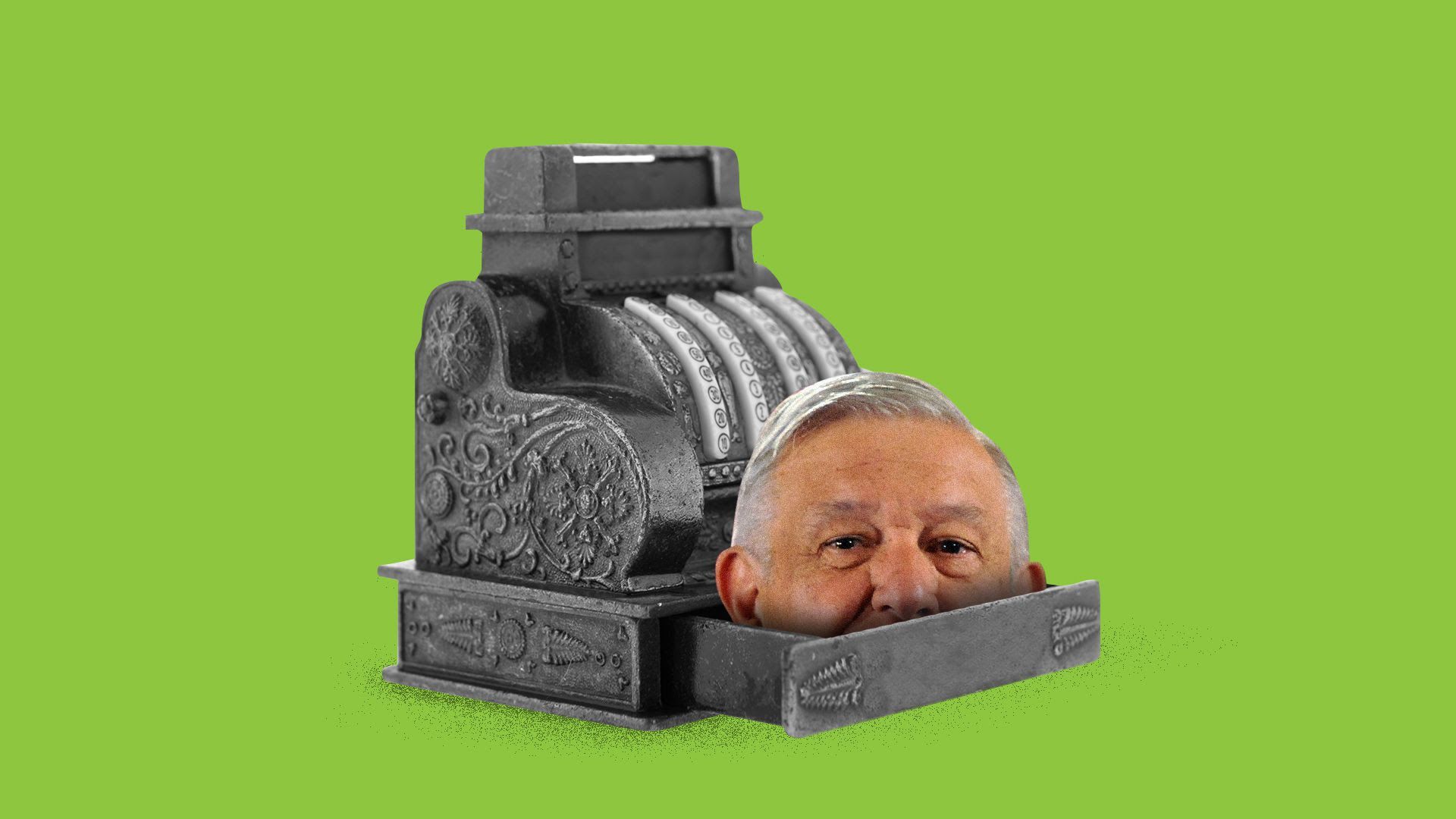Mexico’s unorthodox, left-wing president has made investors a fortune
Add Axios as your preferred source to
see more of our stories on Google.

Illustration: Aïda Amer/Axios. Photo: Pedro Martin Gonzalez Castillo/Getty Contributor
Under socialist President Andrés Manuel López Obrador, referred to as the "Bernie Sanders" of Mexico during his campaign, the country's assets have been "a virtual cash register" for investors.
State of play: While many have been skittish about embracing the controversial and unorthodox new president, during his tenure AMLO has made it rain on financial markets, boosting bond prices and pumping the value of the Mexican peso.
The big picture: Mexico's economy has struggled under AMLO, posting negative GDP growth last year and leading to consensus expectations for just 1% growth in 2020 (which analysts like those at Bank of America Securities think is still 50% too high). But economic progress hasn't been what's driving the gains.
What we're hearing: With yields on government bonds at or near record-low levels in the U.S., eurozone and much of the world, asset managers are in desperate need of high-yielding, stable investments, and Mexican assets have been all that and more.
- "Everybody is talking about Mexico. Probably because of how resilient it is and how it’s a virtual cash register," Marc Chandler, managing director at Bannockburn Global Forex, tells Axios. "It’s more a financial arbitrage story than it is about Mexican growth opportunities."
What it means: Despite its weak growth, Mexican 10-year government bonds have seen yields decline by a whopping 193 basis points over the last 12 months. That has compressed the spread versus comparable U.S. Treasuries by 86 basis points.
- And Mexico's bonds still hold some of the highest yields in the world, so investors are rewarded by bond prices rising (as yields fall) and coupons that are more than four times higher than comparable U.S. government debt.
- The value of the peso also has increased by around 3.5% in the past 12 months against the dollar, giving investors a triple win.
Yes, but: There is worry about how long the good times can last, given the world-beating returns Mexican bonds have had already and a lack of foreign direct investment from incredulous money managers.
- "AMLO’s policies and rhetoric has dampened appetite for investment in Mexico and has increased uncertainty," Jared Lou, portfolio manager at William Blair & Company, tells Axios.
- But Lou admits the Mexican president's conservative fiscal policy "has provided an unexpected anchor for bondholders."


The market believes the Mexican market bonanza has further to go.
By the numbers: Speculators increased bets that the peso would rise in value to record levels in the week ending Feb. 2, data from the CFTC shows. Bullish net-long bets rose for a fourth straight week and have increased in seven of the last eight weeks.
- The Bank of Mexico lowered interest rates Thursday and is expected to cut 100 basis points further this year to help stimulate the economy, according to current market pricing.
- Even if the Fed doesn't cut rates this year, China's recent wave of stimulus measures to combat the novel coronavirus outbreak are also likely to help buoy Mexico's bonds and currency, Emily Weis, macro strategist at State Street, tells Axios.
What's next: "Mexico seems to have all the elements keeping investors there, unlike some other emerging markets," she says.
Of note: The trade has been especially rewarding for investors against the euro.
- The value of the euro has fallen by nearly 8% against the peso over the last 12 months in addition to the 140 basis points of spread compression for Mexican vs. European benchmark bonds.
